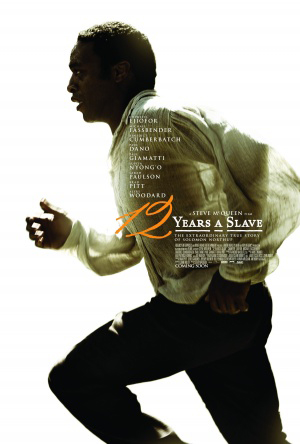By MATTHEW SPECK
CONTRIBUTING WRITER

I had few expectations for 12 Years a Slave. Not low expectations, but few; I did not know what exactly to expect. Historical dramas are not a genre I have much experience with, so Steve McQueen’s adaptation of Solomon Northrup’s memoir was relatively new territory. But there was one thing I was sure of: No way, no how, would I compare the movie to Quentin Tarantino’s Django Unchained. 12 Years was a retelling of true events, while Django was an exaggerated, hyper-violent revenge fantasy. While both depict the Antebellum South, 12 Years would certainly be a much different film; with subtler characters and a much more somber plot, it would be as if it took place in a different universe.
Once the credits began to roll, I realized that the two films were equally shocking: one is hyper-violent and the other hyper-realistic; one uses dark humor and one is just dark. But both leave the viewer with the same sense of outrage.
To be sure, 12 Years a Slave is not the same as Django. There are no scenes that satisfy the viewers’ thirst for revenge against the oppressive slavers or comical, stereotypical impersonations of the southern gentleman. But the two films are strikingly similar in their attitudes towards slavery and in the levels of brutality depicted. The horrific scene of men beating each other to death in Tarantino’s fictitious “Mandingo fighting,” while not historical, vividly illustrates the savagery of slavery as vividly as the climactic whipping of a slave girl in McQueen’s film.
Also, the chief antagonistic plantation owners in the two films are near mirror images of one another. Both Django’s Calvin Candie (Leonardo DiCaprio, Inception) and 12 Years’ Edwin Epps (Michael Fassbender, Inglorious Basterds) are not the Colonel Sanders-esque, Southern gentleman archetypes one might expect. Instead, these two characters are far darker and more sadistic. They are cunning and unsettlingly mercurial. Both are unhinged. There is not a shred of safety around, either. They could both beat and murder any of their slaves on a whim and would have no qualms doing so. Candie and Epps use their slaves for more than work; they are sick methods of entertainment. Candie has his slaves clobber each other, and Epps holds impromptu soirees in which he forces his slaves to dance for his entertainment late at night. The two even look the same. They represent the darkest, most vicious and most dangerous form of racism possible.
While both films depict the South from the same viewpoint, 12 Years a Slave goes beyond the more explicit and obvious brutality of Django. Tarantino’s gun slinging and eccentricity have been replaced by an unremittingly horrific tone. One particularly unsettling moment in 12 Years comes when the protagonist, Solomon Northup (Chiwetel Ejiofor, 2012) is being sold along with others by the heartless slave trader, Theophilus Freeman (Paul Giamatti, Sideways). Freeman walks around the room, showcasing different slaves, slapping them and inspecting them as though they are pieces of livestock. He negotiates with two different buyers for Northup, as well as a female slave who has two children. The camera focuses on Giamatti and potential customers, while the woman pleads in the background not to be separated from her children. The woman is disregarded by the men, as well as the camera. (She is not even an afterthought—barely white noise, an annoying fly to the slaver.) Later, once the woman and Northup arrive at the plantation another woman from the plantation family tells the female slave that she will soon forget her children (eliciting a gasp from the entire audience at my viewing). The characters’ insensitivity to the slaves’ pain generates the film’s disturbing power.
McQueen’s film, as opposed to Tarantino’s, also offers a more diverse cast of white characters. In Django Unchained the only positive white character is Dr. King Shultz (Christoph Waltz), and the rest of the white cast portrays ignorant and despicable southerners. 12 Years not only has a white hero in Samuel Bass (Brad Pitt, Mr. and Mrs. Smith)—a Canadian carpenter working on the same plantation as Northup who helps restore the protagonist’s freedom, but also sheds light on more sympathetic plantation owners. William Ford (Benedict Cumberbatch, The Fifth Estate), a Baptist preacher and slave owner, shows sympathy towards Northup and even defends him against a vengeful and violent farmhand.
12 Years a Slave and Django Unchained share a common core in their outrage at the brutal antebellum south. While Django Unchained is presented with a glossy sheen of style and humor, 12 Years instead adds layers to produce a more rounded realistic and substantive view. Both are excellent films that approach a disturbing subject from a similar point of view, but with different intentions. To satisfy your urge for an invigorating revenge fantasy (with a serious core) see Django. For a more complex portrait that depicts the bleak reality of slavery, you might want to turn to 12 Years.





































































































































































































